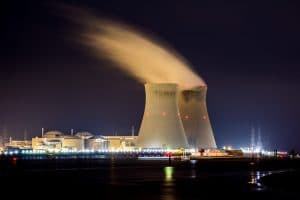A little over two years ago, Paris rioters shocked the world when we were able to log on to social media or our news outlet of choice and view live arson and protestor-police conflict over…a 25 cent fuel tax. The looting and burning pointed to real rage and fear. The mayor of Paris’s 8th district called it a “state of insurrection.”
In the United States, Forbes published a piece entitled “Paris Is Burning Over Climate Change Taxes – Is America Next?” by Chuck DeVore. DeVore made the point that French citizens could barely tolerate a 25 cent increase per gallon of gas, when the United Nations special climate report has called for a carbon tax of $5,500 per ton by 2030. This is equal to $49 per gallon of gasoline or diesel. That’s about 100 times today’s average state and federal motor fuels tax.
He went on to note:
By 2100, the U.N. estimates that a carbon tax of $27,000 per ton is needed—$240 per gallon—to limit global warming to no more than 1.5 degrees Celsius… Keep in mind that the unrest in France was triggered by a looming 25-cent hike, which is a little less than 10% more in taxes than French drivers already pay. To meet the $49 per gallon tax hike recommended by the U.N., fuel taxes in France would have to go up 17-fold.
As described by DeVore, what happened in Paris was the result of a squeezed middle class suffering from a lack of economic freedom. He presumed that a similar outcry will emerge in the U.S., where a growing middle class is struggling under the burden of an increasingly more expensive social welfare program.
Those who see climate change as a dire and urgent threat have some work to do to convince voters in the Western democracies to give up their way of life in exchange for unspecified benefits of a slightly less warm world—and that’s assuming China, India and over a billion people in Africa can be convinced not to try to pull themselves out of poverty—something that may only be done with greater use of fossil fuels.
He went on to stress that the climate change push is sponsored by those who would “presume to tell the rest of us how to live, where to live, and how to work.” He called the UN study “alarmist…making copious use of lies of omission and commission.”
The struggle with this issue is to truly understand what is true and not. We do know that the planet is warming and that the poles are melting at a rate we’ve not seen before. We also know that we are causing mass extinctions due to deforestation and the killing of animals and their food sources. Finally, it is clear that rising temperatures on land and in the oceans will fundamentally change the planet.
The question remains, what should we do? Can we rely on taxation to change behavior and bring about a better future? Will we tolerate it? Will we see the value? Will it ultimately make a difference?
Reality Changing Observations:
1. What are your thoughts, knowledge, fears, or feelings on climate change?
2. What additional evidence would you like to see to prove taxing fossil fuels is the answer?
3. What do you think about DeVore’s points?





